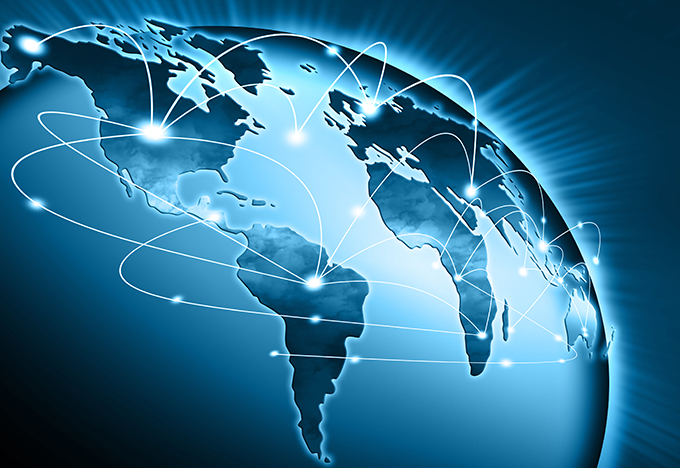 |
| workingcapitalreview.com |
Globalization of food systems has come to be a cultural
standard in many of the so-called “developed” nations. In particular, a
majority of people in the United States continue to rely on a food system
driven entirely by notions of efficiency and commodity. Currently, 70% of the
food consumed in the U.S. comes from supermarkets, which are also fueled by
this global supply chain (Swinnen 5). These global food systems, I believe,
remove much of the identity that can be derived through food production and
consumption. Not only that, but a sense of human interaction in food/cuisine is
lost as well. Global foodways, however, can provide us with products that would
otherwise be inaccessible due to sheer geographic distance.
For this
post, I will use coffee (without which this blog may have never been written)
as a lens through which we can examine the good and bad of local food as well
as global food. Although coffee is somewhat unique in that it is a bean that
becomes a beverage, it requires careful planting, cultivation, harvesting, processing,
shipping, and attentive preparation. In this way, it is akin to many farm
produce items. It is also commonly consumed in a ritual manner, and is enjoyed
in countless cultures across the globe for both its taste and stimulating
effects. Currently, two schools of
thought exist in the coffee world:
1)
Coffee is a commodity and should be treated as
such. (It is even listed on NASDAQ as one)
2)
Coffee is an extremely variable crop, and
differences in region, washing methods, and etc. affect the way each cup of
coffee comes out. The Specialty Coffee Association of America is dedicated to
preserving this mantra.
 |
| Coffee Commodity Price, http://www.nasdaq.com/markets/coffee.aspx |
I’d say that in this way, each of
these opinions on coffee aligns metaphorically with the global versus local
food mindsets. The former represents the philosophy that has driven
globalization of food in general: “produce more, produce faster, sell for
cheaper prices”, in layman’s terms. The latter places emphasis on human
relationships between coffee growers, roasters, and coffee shops. Through the
second view, coffee can be a way for people to interact with others and
experience new things.
In my experience, many American
consumers, including myself, have come to expect the availability and
accessibility of certain foods that wouldn’t be available without today’s
immensely complex global foodways. Essentially, things like coffee, mangos,
bananas, etc., would be the stuff of imagination to the typical New Englander
if it weren’t for the speed of transportation and size of distribution networks
that global foodways can provide. My emphasis on local food movements in the
previous post shows my own affinity for quality local food, but without global
foodways, I would never be able to enjoy the highest quality cup of coffee.
 |
| Coffee beans near the end of roasting, photo by Patrick Buono |
A powerful
argument against globalization exists in the famous thesis of Mcdonaldization.
Coined by George Ritzer, the idea explains that the globalization of McDonald’s
has resulted in some homogenization of cultures (Ritzer vii). The immense
standardization of processes and food offerings in each restaurant provides
reliability and consistency, yes, but at the expense of a diluting of meaning
and identity in the food served at these restaurants. “Big Coffee” operates in
the same way. Their reliance on massive and automated farming operations and
providing the same cup over and over to customers removes both a degree of
quality as well as any sense of connection to the people involved in each step
of the coffee process.
 |
| A McDonald's In Russia, www.sachtimes.com |
Principally,
I am outlining that global food (especially fast food mega-chains) remove much
of the meaning that is tied to food. Removal of this meaning can also strip
away identity that people derive from the cuisine that they choose to eat. This
being said, though, global foodways simultaneously allow us to sample foods and
ingredients from across the entire world, which is a wonderful opportunity that
cannot be shortchanged.
Works
Cited
Ritzer,
George. The McDonaldization Thesis: Explorations and Extensions. London:
SAGE Publications, 1998. Print.
Swinnen,
Johan F. M. Global Supply Chains, Standards and the Poor: How the
Globalization of Food Systems and Standards Affects Rural Development and
Poverty. Wallingford, UK: CABI, 2007. Web. 4 Nov. 2015.
I also agree that the debate between global food systems and local food is a very controversial, but interesting one. Often times global food systems are looked at in a very negative light, but as you mention, there are some highly beneficial things about it. For instance, products New Englanders would never have access to if we did not have food transported and delivered from across the world.
ReplyDeleteAs I read this, an example in our Burlington area came to mind when discussing our relationships to coffee. We often see this play out in local coffee shops, like Uncommon Ground, who favors the relationship we have to our coffee. Where as Starbucks is a large chain that is less focused on the relationship we have with it, but more as an everyday commodity. The two coffee shops both sell coffee, but are rooted with very different intentions on how we understand and interact with their products.